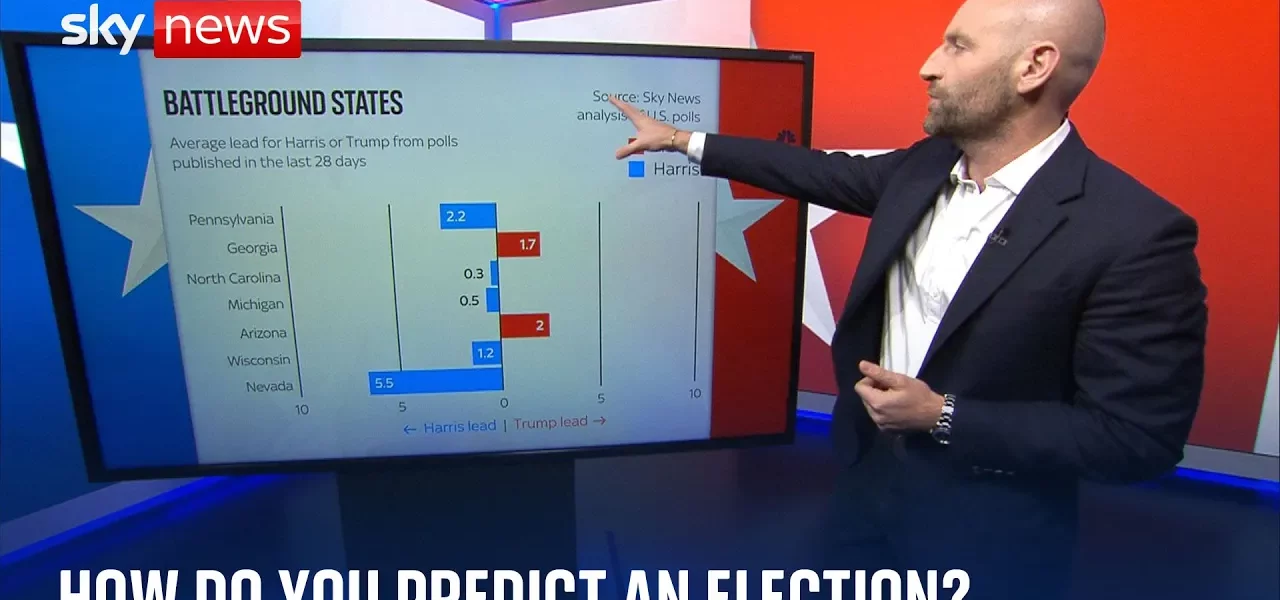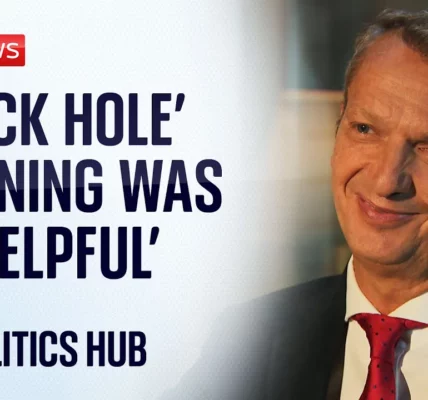How to Predict an Election: Insights on Polling and Betting Markets

Understanding the complexities of predicting elections is crucial for voters, analysts, and political enthusiasts alike. This article delves into the contrasting dynamics of national polling and betting markets, providing insights into how these tools shape our understanding of possible election outcomes.
Introduction
Predicting the outcome of an election is a challenging task, especially in a highly competitive political landscape. With factors such as national polling and betting markets coming into play, voters and analysts often find themselves navigating a sea of data that can sometimes be contradictory. This article aims to explore the intricacies of these two predictive measures, how they interact, and what they can tell us about the upcoming US presidential election. We will examine the current polling trends, the significance of swing states, and how betting markets are reacting to the evolving political scenario.
The Role of National Polling
National polling serves as a cornerstone for understanding voter sentiment across the country. Polls aggregate responses from a diverse range of voters, providing a snapshot of public opinion. However, interpreting these results requires caution.
Understanding Poll Data
Polls can vary significantly based on methodology, sample size, and timing. Key aspects to consider include:
- Sample Size: Larger samples generally yield more reliable results.
- Methodology: Different polling firms may use varying methods, such as phone interviews or online surveys, which can influence outcomes.
- Timing: Polls conducted closer to the election may reflect more accurate sentiments as voters solidify their choices.
The Current Landscape
Currently, the Sky Poll Tracker shows a narrowing lead for the candidate Harris, now reduced to just two points. While this indicates a competitive race, it raises questions about whether this margin is sufficient to secure the necessary 270 electoral votes.
Betting Markets as Predictive Tools
Betting markets offer a unique perspective on election predictions. Unlike polls, which reflect voter sentiment, betting markets represent financial stakes placed on candidates, providing insights into perceived chances of winning.
Betting Market Dynamics
Betting odds can fluctuate rapidly, often reacting to news events, debates, and shifts in public opinion. Key points include:
- Reactivity: Betting markets tend to respond quickly to changes in the political landscape.
- Market Sentiment: The odds reflect not just public sentiment but also insider knowledge and strategic betting by informed individuals.
Current Betting Trends
Recently, Donald Trump has surged in popularity within betting markets, with odds indicating a strong likelihood of him becoming the next US president. This shift presents an extraordinary rise in his favor, raising questions about the efficacy of traditional polling methods.
The Importance of Swing States
Swing states play a pivotal role in determining the outcome of elections, as they can lean towards either major party. Understanding these states is essential for both polling and betting predictions.
Key Swing States
Several states are identified as battlegrounds, including:
- North Carolina
- Michigan
- Nevada
Historical Context and Trends
Examining historical data reveals that Michigan, for instance, has fluctuated between parties in recent elections. Its significance is highlighted in the context of Kent County, known as a bellwether. Winning Kent County could indicate a favorable trend for Harris in Michigan.
Comparing Polling and Betting Markets
While both polling data and betting markets provide valuable insights, they also present limitations. Discrepancies between the two can indicate varying demographic influences and considerations.
Differences in Data Interpretation
It is important to recognize that polling and betting markets may not always align. For example:
- Polling: Often reflects public sentiment at a given time.
- Betting Markets: Reflect the collective judgment of bettors, which may include insider knowledge.
- Inconsistencies: Variations in odds between platforms like Poly Market and Sky Bet highlight the need for caution in interpreting the data.
Conclusion
In conclusion, predicting the outcome of an election involves navigating complex data from both national polls and betting markets. Each tool offers unique insights, yet they also present challenges in interpretation. As we move closer to the election, it will be crucial to monitor these trends closely. Understanding the dynamics at play in swing states and the implications of betting market shifts can provide a clearer picture of the political landscape. For more insights on electoral dynamics, be sure to explore our related articles.
“`




